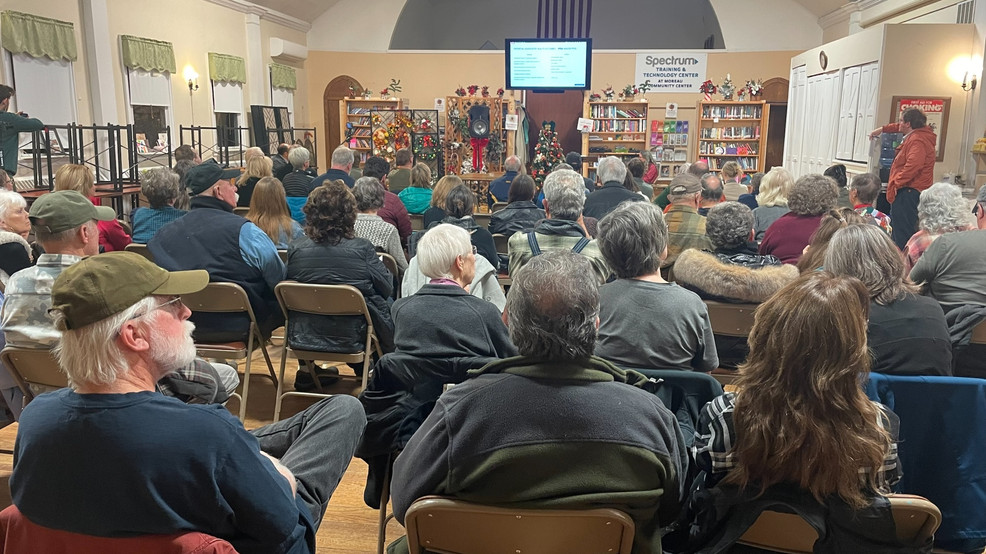
MOREAU, NY (WRGB) — Residents in and around the town of Moreau are continuing their fight to stop a sewage sludge plant from getting built in their community.
On Thursday, dozens gathered at the Moreau Community Center to hear updates on efforts to block Saratoga Biochar from manufacturing fertilizer from human-biosolid waste in their community.
Saratoga BioChar is a project of Northeastern Biochar Solutions.
Last year, the Moreau Town Planning Board gave the company the green light to construct the carbon fertilizer facility at the Moreau Industrial Park, which sits near residential areas.
While Northeastern Biochar Solutions says it “provides the most sustainable use of biosolids to the benefit of human health and the environment”, the Moreau community believes the plant will do anything but, arguing the facility’s impact on the surrounding environment and public health will be dire.
According to advocates, the facility would require the trucking of up to 720 tons of sewage sludge through the town six days a week.
The sewage sludge would originate in communities in the New York City Metro area, the Hudson Valley and western Massachusetts and Connecticut.
“We’re all concerned in our area because we’re going to be in a health hazard area from all the chemicals and the trucks will be going through our houses day and night with this bio product,” said Moreau resident Mary Hall, who lives right at the entrance of the Moreau Industrial Park.
“We’re looking at a plant that’s going to burn 720 tons of sewage sludge at full burnout that the communities all around us and the people in our community will be affected by all of the pollution, PFOAs that you learned about tonight, the smell, the traffic,” said Gina LeClair, who started ‘Not Moreau,’ a community advocacy page against the project.
Sewage sludge is contaminated with “hundreds of unregulated pollutants,” according to a 2018 EPA Inspector General report. PFAS “forever chemicals” are found in sewage sludge at levels between 1,000 and 10,000 times the NY drinking water standard of 10 parts per trillion.
The facility would be the first-of-its-kind in New York State, which means the facility’s effects on the community is not fully known.
In June, a state supreme court judge denied a petition submitted by the Clean Air Action Network (CAAN) of Glens Falls to halt the projects, giving the town the green light to move forward with the facility’s construction.
It was a massive set up for concerned residents, but community advocates say their fight is far from over, as they work on an appeal.
The community is also closely watching the permitting process with the NYS Department of Environmental Conservation. They are also hopeful newly elected officials coming into office in January will better hear residents’ concerns.
